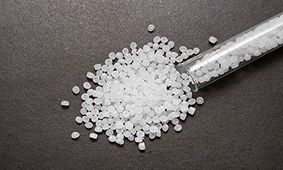
Importers receive approvals for US PE tariff exemptions

The approvals for tariff exemptions on polyethylene (PE) came after successful applications for local propane dehydrogenation (PDH) operators who will also receive exemptions on US-origin propane imports.
PE applicants in China said that the application process was simple and that approvals on volume were granted in full, with no qualifying limits. But these importers and traders with successful applications are unlikely to exercise these approved tariff exemptions in the short term.
Chinese import demand for LLDPE and HDPE remains weak moving into March as local inventories remain high while the coronavirus continues to hit demand. Downstream plastic converters are still operating at lower rates because of limited labour and sluggish demand.
This has resulted in continuous declines in LLDPE and HDPE prices since the lunar new year holidays. Prices of LLDPE and HDPE were at $800-820/t cfr and $800-830/t cfr respectively on 5 March, according to Argus data. At current China spot prices, the arbitrage windows for US-origin LLDPE and HDPE is barely open and has also reduced the inclination for Chinese importers to apply for the import tariff waivers.
US-origin spot export offers for LLDPE and HDPE were at $761/t and $805/t on a fas Houston basis on 5 March, according to Argus data. Estimated freight cost from the US to China is $30-$50/t, depending on vessel availability and sizes.
Spot LLDPE and HDPE offers from the US to other parts of Asia were also limited in first quarter of 2020 on the back of strong domestic consumption and better trade netbacks into other markets. Total US PE exports were down by 7.9pc while domestic sales rose by 3.6pc in January against December. Spot prices of LLDPE and HDPE have risen by $55/t and $110/t respectively on fas Houston basis since early January, according to Argus data.
The exemptions of Chinese import tariffs on US-origin LLDPE and HDPE are likely to exert pressure on the Chinese domestic market from June, when US exports to Asia are expected to grow in the second half of the year.
The availability of PE from producers of other regions at competitive prices may also contribute to the delayed applications from other PE importers. Middle East producers have exported substantial PE volumes into China in 2019 with preferential duty status.
Chinese firms however, plan to increase their application volumes once economics for the US-China trade flows becomes more viable during the second half of the year.
Chinese imports of LLDPE and HDPE reached a peak of 560,000 t/yr in 2018 but have dropped by 60pc to 225,000 t/yr in 2019 as a result of the US-China trade war. Buyers have increasingly sought LLDPE and HDPE from other regions, and this has benefitted producers from Middle East, Russia, India and southeast Asia.
Successful applications of the exemptions will remove all additional import tariffs. US-origin LLDPE and HDPE will only be subject to 6.5pc import tax following the exemption.
By Yee Ying Ang and China staff


Trump weighs using $2 billion in CHIPS Act funding for critical minerals

Codelco cuts 2025 copper forecast after El Teniente mine collapse

Electra converts debt, launches $30M raise to jumpstart stalled cobalt refinery

Barrick’s Reko Diq in line for $410M ADB backing

Abcourt readies Sleeping Giant mill to pour first gold since 2014

Nevada army depot to serve as base for first US strategic minerals stockpile

SQM boosts lithium supply plans as prices flick higher

Viridis unveils 200Mt initial reserve for Brazil rare earth project

Tailings could meet much of US critical mineral demand – study

Kyrgyzstan kicks off underground gold mining at Kumtor

Kyrgyzstan kicks off underground gold mining at Kumtor

KoBold Metals granted lithium exploration rights in Congo

Freeport Indonesia to wrap up Gresik plant repairs by early September

Energy Fuels soars on Vulcan Elements partnership

Northern Dynasty sticks to proposal in battle to lift Pebble mine veto

Giustra-backed mining firm teams up with informal miners in Colombia

Critical Metals signs agreement to supply rare earth to US government-funded facility

China extends rare earth controls to imported material

Galan Lithium proceeds with $13M financing for Argentina project

Kyrgyzstan kicks off underground gold mining at Kumtor

Freeport Indonesia to wrap up Gresik plant repairs by early September

Energy Fuels soars on Vulcan Elements partnership

Northern Dynasty sticks to proposal in battle to lift Pebble mine veto

Giustra-backed mining firm teams up with informal miners in Colombia

Critical Metals signs agreement to supply rare earth to US government-funded facility

China extends rare earth controls to imported material

Galan Lithium proceeds with $13M financing for Argentina project

Silver price touches $39 as market weighs rate cut outlook

















